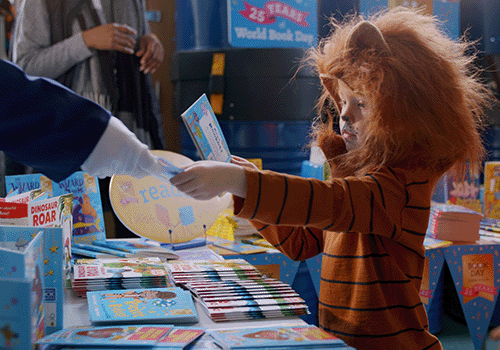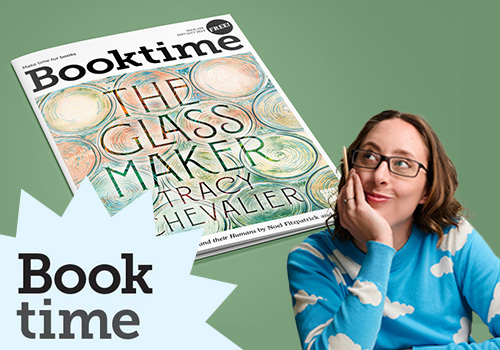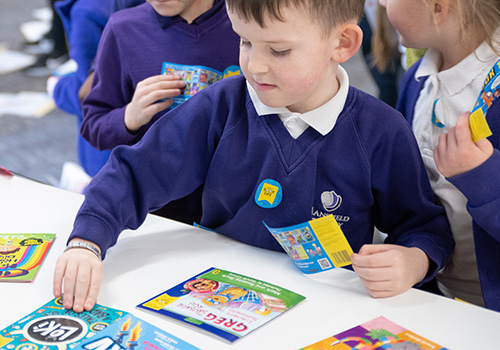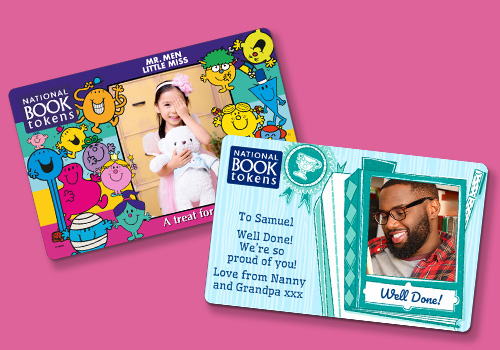Top children's authors share their story writing tips for BBC 500 Words
We're proud to partner with BBC 500 Words, the UK's largest story writing contest for 5 to 11-year-olds, which invites children to write a story they would love to read in 500 words or less. To inspire young writers and story lovers, we asked our favourite authors to share their writing tips and advice.
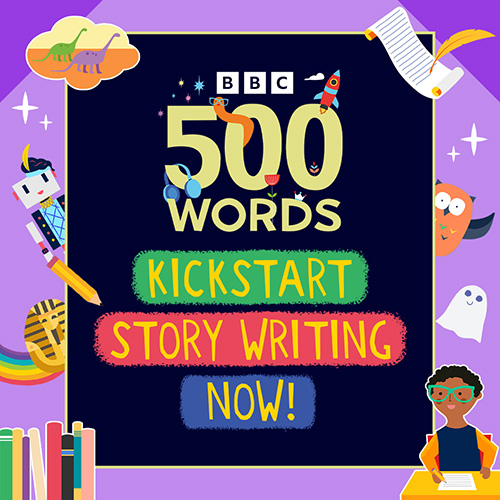
Maz Evans, author of Oh What a Knight!
"So my top tip for any budding author is to really focus on what does your character WANT? This is the key to every story – someone wants something and they’re going to have to go through a lot to get it. If you're stuck, think about what you'd want most in the world. A pet giraffe? A flying skateboard? Invisibility pants? Whatever it is, make your character desperately want that too – and then put lots of problems in the way of them getting it. Boom – there’s your story. Now where did I put those invisibility pants…?"
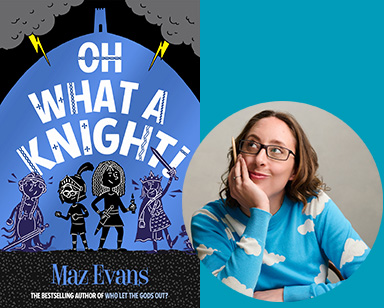
Jacqueline Wilson, author of The Magic Faraway Tree: A New Adventure
"Children often ask me how to get started writing a story. Why not pretend you’re talking to your best friend so your prose starts naturally? What sort of story is it going to be? A family story, an adventure story, a fantasy? What about your characters. Think about them carefully, making them up in your head so that they seem real. Then scribble on your page or tap your keyboard, letting your ideas flow. It helps enormously to read heaps of books to see how authors write their own stories. Don’t tell, but I think I actually prefer reading to writing! Have fun doing both!"
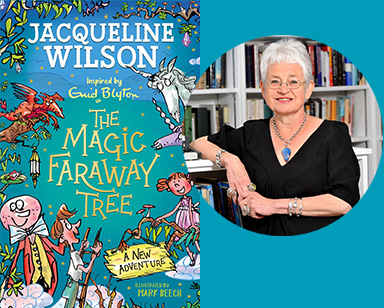
Jasbinder Bilan, author of Nush and the Stolen Emerald
"Close your eyes and imagine an exciting place to set your story. It can be a real or fantasy world. Draw a story map of the place. Include everything you can think of. Next, who do you see there? It could be a person, animal or fantasy creature. Give them some physical detail to make them memorable. What are they doing? What do they want more than anything and what or who is standing in their way? Finally, decide how your story is going to end and get imagining how you got there. Good luck!!"
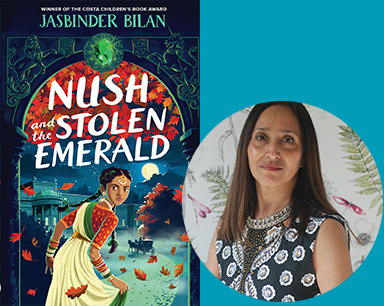
Jeffrey Boakye, author of Kofi and the Secret Radio Station
"One of the most important things to remember is that your main character is there to be tested, so don’t be afraid to put them into tricky situations. Even if there doesn’t seem to be an easy way out, you have to trust that your hero can work out a solution… or not! That’s the fun of creating exciting scenes that the audience will enjoy reading.
To do this, it’s vital to know what your character wants at all times. It might be something small, like getting a chocolate bar, or something big like solving a mystery or surviving a trip through space. Either way, a strong sense of your character’s motivation will tell you how they will react to any given situation. Which is often a surprise for you too!"
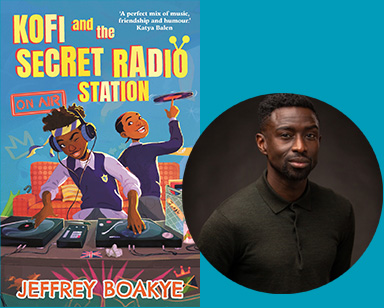
Sally Gardner, author of Pernickety Boo
"Being severely dyslexic myself, spelling and grammar have not been my strong points. Technology has without any doubt helped people like me. I call my dyslexia my shorthand: I type my story out and then I use a mixture of tools like spellcheck to get a clean script. I also read my work out loud again and again to hear what the words sound like and get the beat of the language. Be brave, speak loud with your words, speak your truth and tell your tale."
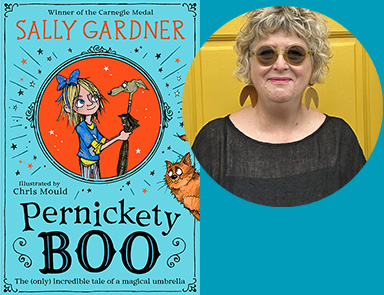
Pamela Butchart, author of The Great Crisp Robbery
"Starting a story can be tricky. But have a TOP TIP I’m going to share with you… Start your story with a BANG. That’s means, start your story with something really EXCITING happening (it’s really fun to do!). You can use one these EXCITING story starters…
1. I looked out my window into the dark garden. Suddenly, there was a FLASH of lightening and I saw…
2. One day, a giant EGG the same height as the school appeared in the playground. It started to crack and out jumped a…
3. When I walked into the classroom on Monday I saw something I NEVER expected to see. It was…"
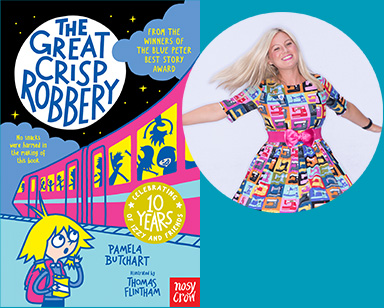
Laila Rifaat, author of Aliya Aboard the Time Train
"Writing stories is a lot like exploring. That means that whatever you write doesn’t have to be perfect at first. When you start, allow yourself to brainstorm, let your mind flow freely! My best ideas usually appear that way. It’s helpful to think of a writer as having two hats: one for writing and another for editing. When you are wearing your writing hat, allow yourself to write without too much thinking. Later, you can put on your editor's hat and fix and tweak to make the story shine even brighter."
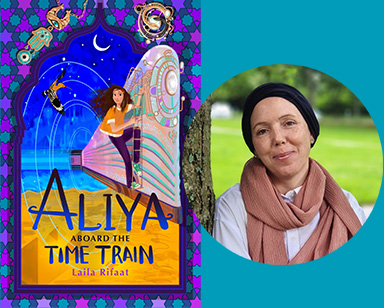
Sam Sedgman, author of Isaac Turner Investigates: The Clockwork Conspiracy
"Not sure where to start? Choose a setting for your story that you find fascinating. If you love books, set your story in a library. If you love cars, set it at a racetrack. Animals? Maybe a zoo. Football? Try a stadium. Whether it's dragons, rocket ships or ghosts, pick something you like, or think is fun, and set your story in that world. It's a great way to fire up your imagination and make your story unique to you."
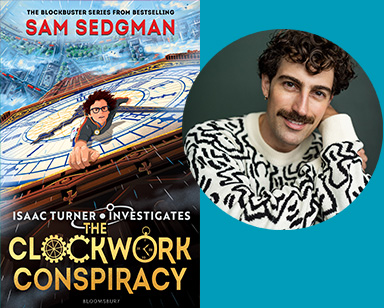
Hannah Gold, author of Turtle Moon
"Getting started is often the hardest part so choose a writing prompt to get you going. This could be a random sentence from a book, a prop, a picture, even your favourite song lyric. Whatever lights you up the most! Once you've started, quite often the story will then take off in a completely unexpected direction. This is the fun part! All you need to do is just let it fly. Afterwards you can edit it into shape and be super proud of what you've just achieved."
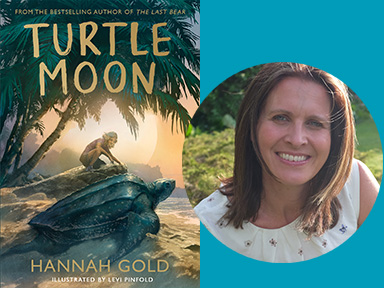
Anna James, author of Chronicles of Whetherwhy: The Age of Enchantment
"Have a think about your favourite books and then make a list of three things that you love to read about – it could be a particular genre, or type of character, or a setting – anything YOU love. My list would be fantasy, family, and bookshops. Then use those things as a starting point for your writing – if you write something that you would love to read then you can't go too far wrong!"
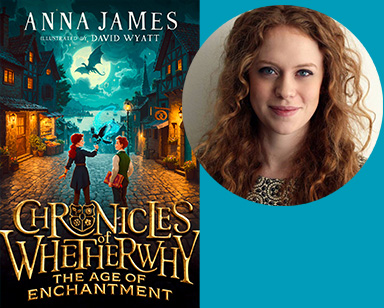
Cressida Cowell, author of How to Train Your Dragon: Dragon Tales Collection
"Have a notebook to draw and write in, and NO ONE is allowed to correct it. Spelling and handwriting don't matter - it’s a place for FUN. You can write stories, or notes from any exciting facts, or drawings, or comic strips, or ideas for films or pictures of characters. You can write about books you’ve read or films that you've watched. I started this when I was very young, and some of the story ideas I had about Vikings and dragons became the How to Train Your Dragon book and film series. I still keep notebooks now."
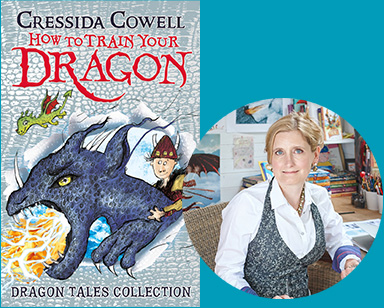
Chibundu Onuzo, author of Mayowa and the Sea of Words
"Read as much as you can and as widely as you can. Great readers make great writers. Keep a journal for a few days. Look through the events you've written down. Could any of these events be the starting point of a story? For example, you missed your bus to school. Or you have a new teacher who dresses only in green. Whatever detail strikes you, start with that and see where your imagination takes you."
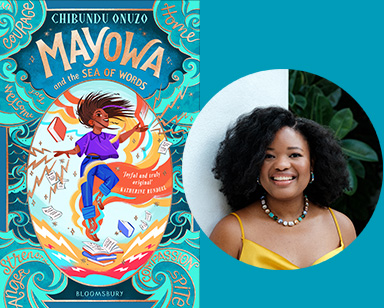
Emma Carroll, author of The Houdini Inheritance
"Once you've written your whole story, go back to the beginning and re-read your opening lines. Do they grip the reader's attention? Do they hint at what's to come? Do they mirror your final chapter in some way? It's much easier to write a great story opening once you know the whole story from start to finish."
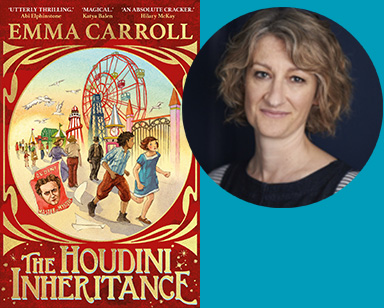
Katya Balen, author of Ghostlines
"I love reading beautiful writing, so that's what I try to write too. My best tip for making your writing more beautiful is to take an everyday object or experience and try to describe it using all your senses. Just write five sentences. Then, say you've described a lemon – pick the one sentence that isn't telling your reader what it looks like. Try and pick a sentence that uses the most unusual sense for that particular thing. What does the wind taste like? How does a lemon feel under your fingers? What does music look like when you close your eyes? You'll end up with some strange stuff and some beautiful stuff too. Trust me. "
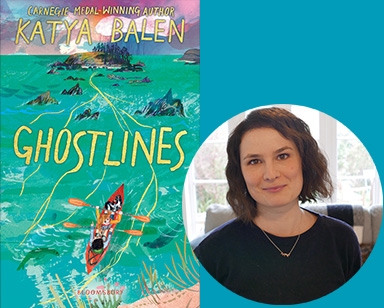
Lesley Parr, author of Fallout
"My writing tip is to lower your expectations. Yes, really! But only at first. What I mean is you mustn't expect to get it right straight away. No one does. I certainly don’t. The first draft is a way for you to find out what the story can be; it’s a time to play and experiment and discover! Then you edit. I love editing. I know ‘checking your work’ often feels boring, but this isn't checking; it’s exploring… And by doing it you'll be turning your story into the very best it can be. So off you go – play with words!"
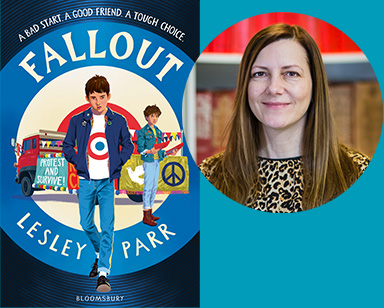
Max Boucherat, author of The Last Life of Lori Mills
"Be weird, and don’t hold back!! Write about that one particular interest you have, even if no-one else shares it. Write about that one thing that irritates you, or that one thing that makes you happiest, that brings you joy, that you want to read about more than anything else imaginable. Because when you do – when you realise that your unique point of view is your secret writing superpower – the end result are stories no-one else on Earth could write but YOU. And those are the stories that SHINE."
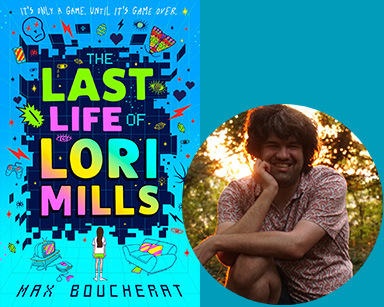
Helen Peters, author The Great Farm Rescue
"My top tip is to focus on an important moment for your character – a moment that changes them in some way. Give your character a problem at the beginning of the story. Then show them dealing with that problem. They might solve it, or they might not. They might deal with it in an unexpected or surprising way. By the end of the story, something will have changed for them. Maybe they’ve become braver, maybe they’ve made a decision, maybe they’ve learned something, maybe they've realised something – you decide!"
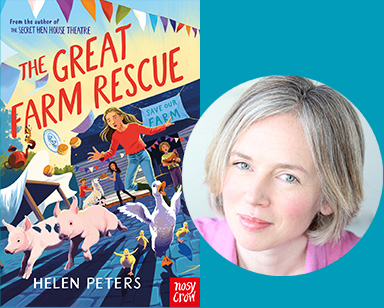
Natasha Farrant, author of The Secret of Golden Island
"Write your first draft like no-one is ever going to read it. The first draft belongs to you and only you, so let your imagination fly. Don't worry about style, spelling or even sense! Then… re-read it. What needs to change? How can it be better? Rewrite it, then re-read it again. Rewrite. Again, and again, and again, because good writing is re-writing. This is true of every writer, whether they’re just starting out or have been published for years. It's not easy, but it’s worth it, I promise!"
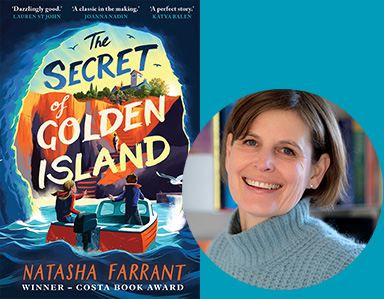
Zanib Mian, author of Meet the Maliks – Twin Detectives: The Emerald Emergency
"To write a great story, you need characters that stand out! When people read your story, they should feel as if they really know and understand the characters. Even if it's a villain who they super definitely don’t want to know or even meet in real life! One great tip for writing your characters like this, which is something I do all the time, is to use your imagination to 'spend time' with your character. Imagine a scenario, like going to a theme park, or anything that relates to your story's setting, and imagine what your interaction with that character would be like. How would they behave? What kinds of things would they say? How would they make you feel? This way, you get to know them really well and that will come across in your writing!"
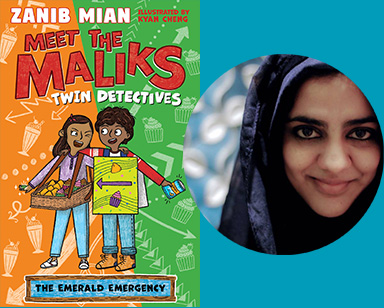
Rosie Jones, author of Moving On Up
"My advice for anyone writing is ENJOY IT! If you do, your readers are more likely to enjoy what you’ve written as well. Pick a subject you’re really interested in and just go for it. Don’t worry too much about spelling and punctuation – you can fix all that later on – just get creative and lose yourself in the world you’re writing about. Really try and BE there – 'be' the characters, 'be' in the setting … and GOOOOO! Don’t worry about too much about who’s going to read, either – write for YOU. And have FUN!"
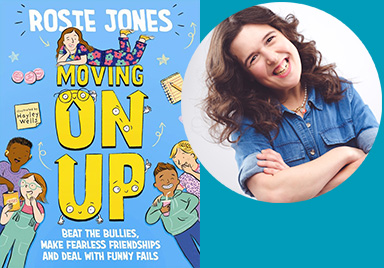
Christopher Edge, author of Black Hole Cinema Club
"If you want to write a story that reads like a blockbuster, you need to think like a film director. Try to come up with a great opening line that will hook the reader’s attention right from the start. What happens next? Imagine you’re directing each scene of the story and use the movie camera of your imagination to guide the reader. Making a storyboard can help you to visualise the action and think about how different events link together. Remember, you want to keep readers on the edge of their seats so build twists and turns into the plot to create suspense and excitement."
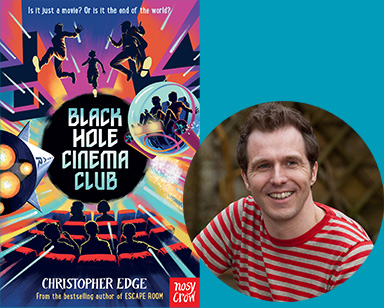
Catherine Bruton, author of Bird Boy
"Seek inspiration in nature! Go for a walk, daydream under a tree, cuddle your pet, feed some birds, fly a kite, go wild-flower spotting, try wild swimming. Head to the park, the woods, the fields, the river or just hang out in your own garden... there’s a proven link between creativity and the natural world. So if you are stuck, step away from your desk and head outdoors for inspiration!"
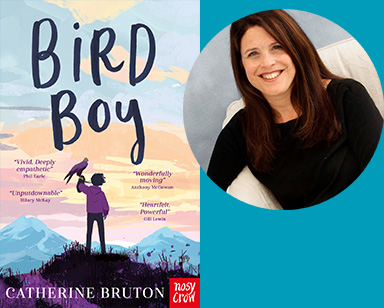
Iszi Lawrence, author of City of Spies
"You don't need to be good at writing to be a good story teller. If you've ever played with your toys, led an army to do battle with your friends, run away from monsters, been the monster, or seen people fall in love in a dollhouse... that is all that storytelling is. It is a muscle that grown-ups forget to train. Don't ever stop playing."
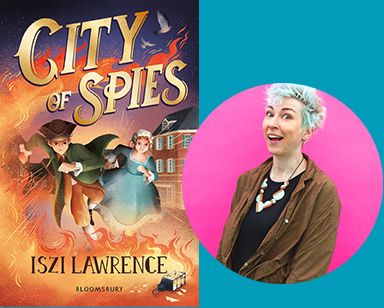
Sophie Kirtley, author of The Haunting of Fortune Farm
"I always think a lot about the setting when I'm writing my books, so that's my top tip – try to think about your story setting almost as if it's a character too. The place where your story happens might have a certain mood. Is it spooky and mysterious? Is it wild and adventurous? Is it hair-raising and dangerous? Have fun exploring your story setting as you write and try to develop the mood of your place so that your reader really feels it too. In The Haunting of Fortune Farm, the setting is an isolated cottage deep in the Irish mountains – it is a beautiful but imposing place; slightly sinister, slightly mournful and definitely rather mysterious. Thinking about the setting is a great way to bring real atmosphere to your writing."
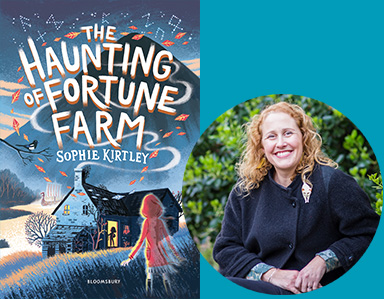
We're an official 500 Words partner!
We're working with the BBC to offer National Book Tokens gift cards to hundreds of the country's children who are most at risk of poverty, and most likely to lack access to books and reading for pleasure. The winners of the story writing competition will also receive book tokens alongside lots of books for the children and their schools.
Find out more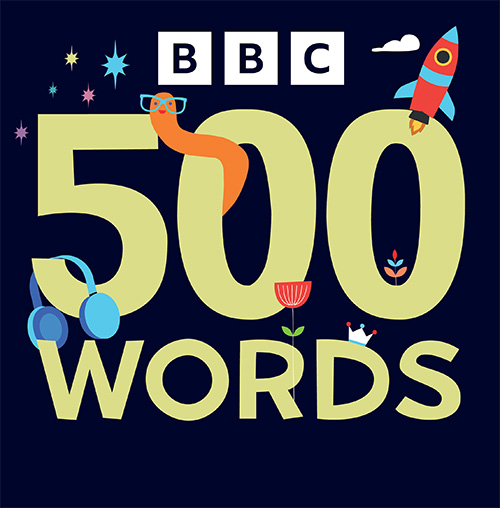
Supporting reading for pleasure
We know that reading for pleasure is the biggest indicator of a child's future success, and has a far-reaching impact on wellbeing. That's why we celebrate books and reading for children through our charity partnerships, as well as through our year-round calendar of fun competitions, reading recommendations and quizzes.
Read more